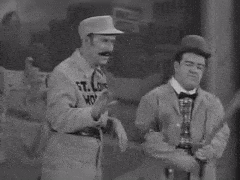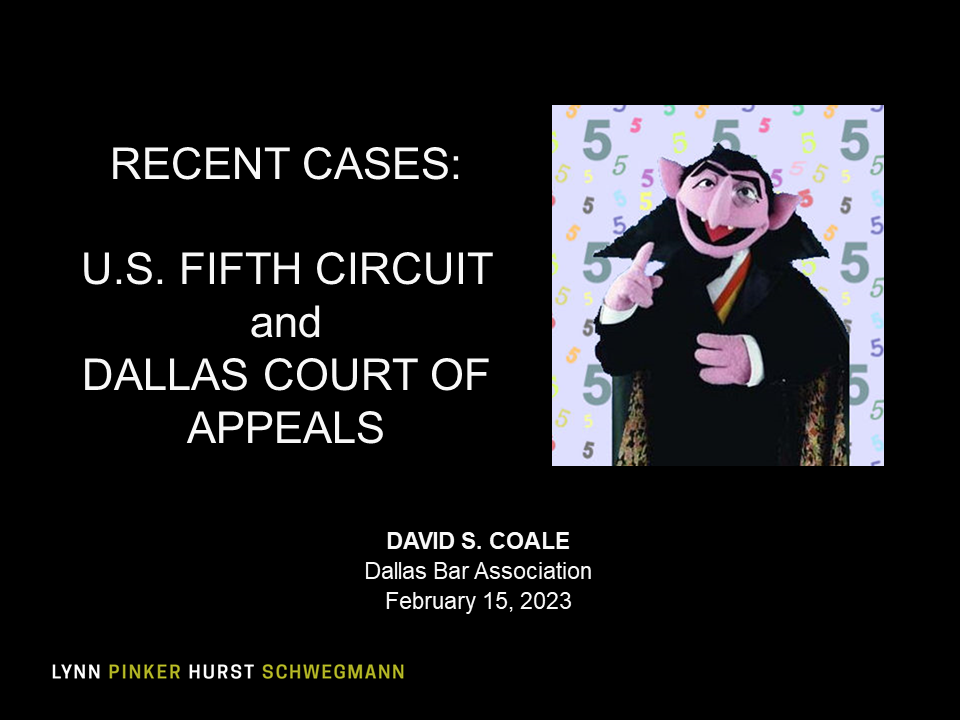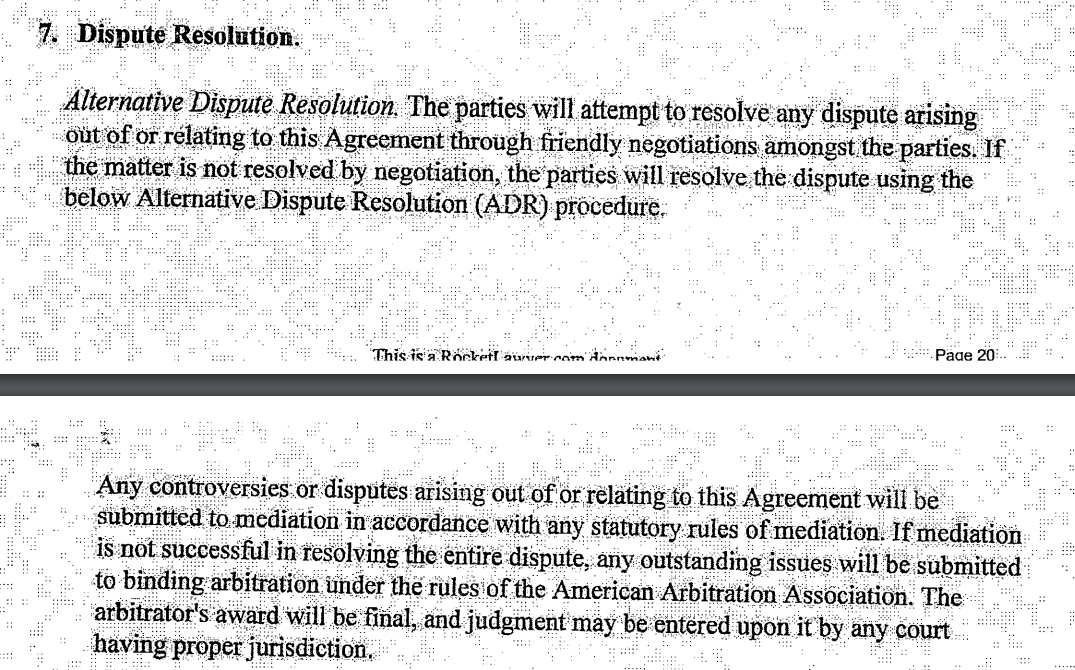The Baroque rules surrounding special-exception practice led to reversal in J.G. v. Jones, a claim by “J.G.” against the owner of the Dallas Cowboys alleging unwanted physical contact. In particular, the Fifth Court held:
- Preservation. Where, as here, the plaintiff amended in response to a special-exceptions order, the plaintiff preserved error by, inter alia, opposing the defendants’ motion to dismiss. The Court distinguished a 1993 opinion in which the plaintiff did not amend in response to a similar order.
- Merits. The Court noted that of six deficiencies identified in the special exceptions, only two were challenged in the motion to dismiss. As to the location of the alleged conduct, the court found that her revised description “was at least a good faith attempt” that could not support dismissal; as to the use of initials, the court noted that “[a]ppellees do not dispute that they were informed of appellant’s identify before the trial court ruled on their motion to dismiss.”
No. 05-22-00215-CV (Feb. 27, 2023) (mem. op.). The Dallas Morning News recently reported on the case.




